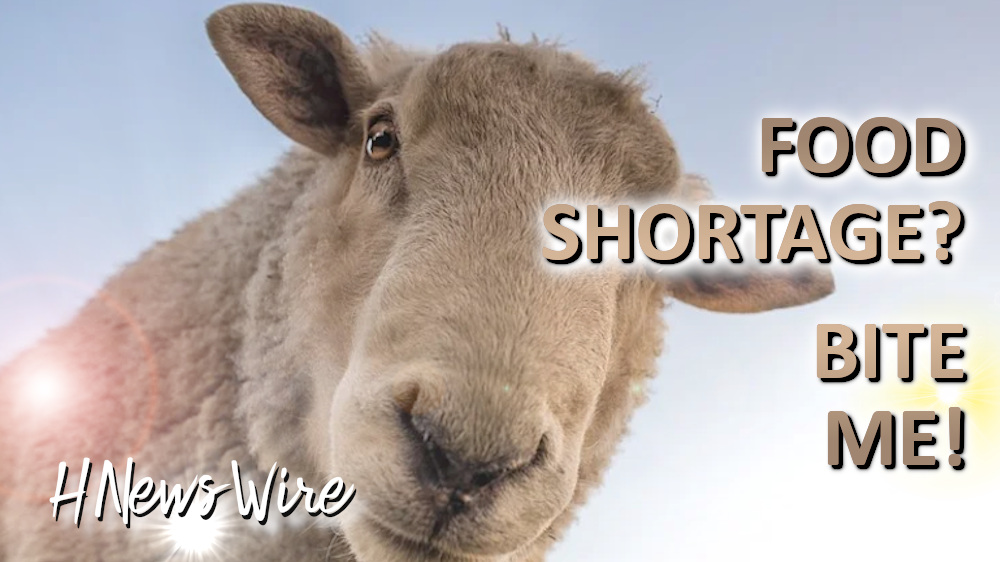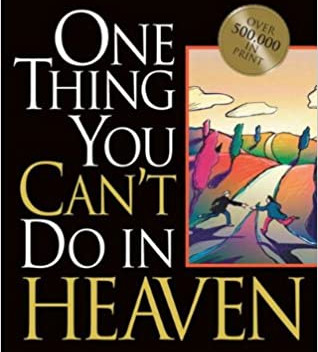
Advisory: Be careful of what you read on social media. The algorithms used by these platforms have no regard for Biblical truth. They target your emotions to keep you engaged on their site so their advertisers can drop more ads. These platforms exist to enrich their stockholders. Consider God’s promise to Believers in James 1:5, “If any of you lacks wisdom, you should ask God, who gives generously to all without finding fault, and it will be given to you.”
Featured Story

As the situation in Ukraine continues, the UN’s Food and Agriculture Organization (FAO) warned on Friday that global food prices might jump by 20% from present levels.
According to the FAO, Ukraine’s agriculture economy has been affected by Russia’s invasion, making it doubtful whether the country will be able to harvest crops this year.
Russia and Ukraine contribute for a quarter of global wheat trade, a fifth of global corn commerce, and 12% of global calorie trade.
Due to the inability to export critical farm goods from the region, the FAO believes that global food prices, which are already at record highs, might rise another 8% to 20%.
In a statement, FAO Director-General Qu Dongyu said, “The expected disruptions to agricultural activity of these two important exporters of staple commodities might substantially aggravate food insecurity globally.”
“International food and feed costs could rise by 8 to 22 percent above their already high levels,” according to Dongyu.
For the Northern Hemisphere, spring is just around the corner. Despite the crisis, Ukrainian President Volodymyr Zelensky advised locals to begin planting season on Friday.
Governments around the world are preparing for a global food crisis and taking measures to protect domestic food supply. Russia has announced that fertilizer exports to ‘unfriendly’ countries will be prohibited.
Meanwhile, following the consequences from the Ukraine crisis, French President Emmanuel Macron stated that his country must safeguard “our food security.” He believes that the interruption in the food supply will have the greatest impact on African countries.
The next global food crisis is soon approaching. Russia is already being blamed by world leaders for everything from record-high food prices to surging gas prices. The Biden administration began its propaganda campaign this week, blaming Russia for soaring inflation. After unleashing trillions of dollars in stimulus, Russian President Vladimir Putin has conveniently become the blame for the West’s incapacity to control inflation.
As the war continues, commodity prices, such as energy and metals, have skyrocketed, posing a serious risk of market disruption.
Governments are starting to take action to protect domestic supplies and keep inflation low as the price of major food commodities continues to increase.
Wheat prices have soared since the beginning of the year, and they have only gotten worse since Russia invaded Ukraine on February 24.
According to the United Nations Food and Agriculture Organization (FAO), Ukraine and Russia are the world’s third and eighth largest wheat producers, respectively, and export about a third of all wheat and barley.
It has grown increasingly difficult and expensive to get grain cargoes, with Ukraine’s ports out of service and traders avoiding Russia as a result of financial sanctions.
Global food markets must remain free and unrestricted, according to the FAO.
“Governments must evaluate potential repercussions on international markets before taking any measures to safeguard food supply,” FAO Director-General Qu Dongyu said.
“Reducing import tariffs or imposing export limits could assist alleviate individual country food security issues in the short term, but they would raise prices on global markets,” he said.
Protectionist measures had been in place since 2020, when the epidemic initiated a long-term pattern of supply shortages and high pricing, which the invasion of Ukraine has further aggravated.
Grain exports to Armenia, Belarus, Kazakhstan, and Kyrgyzstan were temporarily banned by the Russian government last week.
Some grain exports have been banned in Moldova, Hungary, and Serbia, and due to labor-related production concerns, Indonesia and Malaysia, one of the world’s largest cooking oil producers, are increasing controls on palm oil shipments.
On March 11, Egypt declared a three-month embargo on the export of basics such as flour, lentils, wheat, and pasta, while Argentina and Turkey took steps to tighten control over their domestic products.
Long-term food shortages are extremely dangerous for many countries in Africa, Asia, and the Middle East.
Russia and Ukraine supply over 70% of Egypt’s and Turkey’s wheat, while Russia alone supplies 90% of Lebanon’s wheat and cooking oil imports.
Poorer countries in Africa, for example, rely on imported bread to feed their expanding populations.
Ukraine is a major supplier to Asia, and Russia provides the majority of Africa’s wheat.
In 2020, African countries would import agricultural products worth $4 billion from Russia.
Nigeria is taking steps to reduce its reliance on Russia, but the food supply chain disruption is having an impact further east.
In 2021, Ukraine was second in terms of wheat exports to Asian countries like Indonesia.
Ukraine’s soil is extremely rich in nutrients. With the ability to feed half a billion people, the country has been called the “breadbasket of Europe” in the past.
Every year, Ukraine cultivates about 32 million hectares of land, with crops accounting for the majority of the country’s exports.
According to experts, countries that rely on Ukrainian wheat may suffer shortages as early as July.
There is a genuine risk of people going hungry if record food costs continue to rise at this pace.
According to the International Trade Centre, Russia produces over 40% of total global sunflower seed, safflower, or cottonseed exports, as well as 18% of global wheat and meslin exports.
Ukraine, on the other hand, produces 18 percent of the world’s sunflower seeds, safflower oil, and cottonseed oil, as well as 8% of the world’s wheat and meslin, 13% of the world’s barley, and 13% of the world’s corn.
Russia, the world’s largest fertilizer producer, has threatened to cease fertilizer exports, raising costs for farmers worldwide.
For major commodity crops like corn and soybeans, ammonium nitrate, urea, and potash are essential nutrients.
Because of Russia’s sanctions, the price of natural gas, which is used to make nitrogen fertilizer, has increased.
Sanctions imposed by the United States on Belarus have also affected important potash supply from that country, exacerbating the problem.
Meanwhile, as the continuous turmoil in Eastern Europe raises the cost of livestock feed and fertilizer, the cost of dairy, beef, and U.S. and Canadian wheat exports has risen in the West.
The recent price increase coincides with a drought in South America, which has already decreased soy bean supply, lowering global livestock feed supplies.
Wheat futures in the United States increased in March after falling sharply the previous two sessions as traders reviewed the latest developments in Ukraine, which are still turbulent.
Other suppliers, such as the European Union, Canada, and the United States, are being looked at by grain merchants.
Time is running short for Ukraine’s spring planting season, which spans from the first ten days of March until the end of April.
According to analysts, the length of the battle will influence how much food prices climb, as Ukrainian planting must be done by the end of April.

Tagged In
Newsletter
Must Read




Other Sources

Latest News
Watchman: They Killed With Immunity, Bill Gates,Google and Our Own Government
By SRH, A new peer-reviewed study indicated that COVID KILL SHOTS mRNA shots were “designed” to cause a global VAIDS epidemic and significantly diminish the…
Read MoreWatchman The End of Free Speech and Expression: The EU Signs a Law to ‘Police’ the Entire Internet and Take Down Websites With Unapproved Speech
What BS…we’re bringing our European values into the digital world. With strict rules on transparency and accountability, our Digital Services Act aims to protect our…
Read MoreGoogle’s Chief Executive Officer Sundar Pichai Has Issued a Warning to Employees, Stating That the Company Is Not “Immune to Economic Headwinds.” HNewsWire: The Latest News When You Tell Lies About the Truth, the Trouble With Google Has Only Just Started
HNewsWire: Now, CEO Sundar Pichai has sent an alert to staff, asking for suggestions to improve efficiency and productivity but also warning of an economy…
Read MoreTHE WORLD SUPPRESSES THE TRUTH,IN ORDER FOR SIN TO WORK, THERE HAS TO BE A “SUPPRESSION OF THE TRUTH” BIDEN SOLDIERS ARE WORKING OVERTIME
HNewsWire: Let’s review everything we’ve learned so far: Evil people are in charge. They’re all liars. They take pleasure in misery. On the inside, they…
Read More

We make every effort to acknowledge sources used in our news articles. In a few cases, the sources were lost due to a technological glitch. If you believe we have not given sufficient credit for your source material, please contact us, and we will be more than happy to link to your article.




